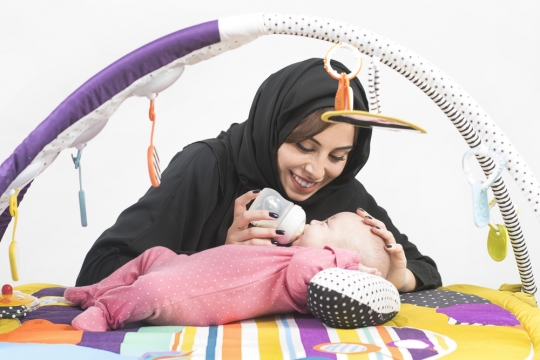There are plenty of obstacles to navigate when becoming a parent, but starting a family as an expat in a foreign country can sometimes be that bit more overwhelming. What exactly are you entitled to in comparison to back home when it comes to maternity leave, childcare costs and other factors that revolve around family life?Sometimes it can feel stressful trying to work all of these things out and know what exactly your rights are whilst also preparing your home for your exciting new arrival. That’s why we’ve written this straightforward guide to maternity leave in Germany, so that you know exactly what you’re entitled to as an expat in that country.
Overview Of Parental Leave In Germany
The current German parental leave (Elternzeit) was implemented in 2007 to combat dropping fertility rates and protect working mothers. Maternity leave in Germany is federally protected and mandated, meaning you cannot be discriminated against for pregnancy or maternity leave, and that your contract cannot be terminated during your maternity leave. The German parental leave system is a generous one compared to many other countries, with both the mother and father being granted the same leave entitlements. By law, your jobs will be protected for any length of time up until the child turns three, and the law even extends to include step-parents.
Nationals from EU member states as well as Iceland, Liechtenstein, Norway and Switzerland are entitled to parental allowance in the same way as German nationals if they live or work in Germany. For those who have come from outside of the EU, a settlement permit will also satisfy the conditions and allow you maternity/parental leave in Germany. Those with residence permits who are entitled to work in Germany are also eligible. However, those who received a residence permit through hardship cases will not be entitled to these payments until they have stayed in Germany for a three-year period.
Length Of Maternity Leave In Germany
New mothers in Germany should be automatically given six weeks of compulsory full paid leave before the birth, and eight weeks afterwards. This is often extended to 12 weeks following premature or multiple births; this comes under what is known as Mutterschutz, which translates as mother protection. After this period, the parents can decide whether they want to go back to work or apply for further Elternzeit. This can actually be any length of time, with only a few stipulations. For example, the parent applying for leave must limit those periods of leave to two during the first three years (although each period can be as long as they want). Furthermore, if a parent wants to take an entire year of parental leave, they cannot take any in the following year without their employer’s permission.
Maternity Pay In Germany
During those first six weeks, and the eight-week period after, the Mutterschutz period will ensure that you receive full pay. You will then receive partial payment for the remainder of your Elternzeit; usually, the mother will be entitled to about 65 percent of her income. Additionally, both parents can claim parental benefits, either separately or together. The benefits cover a minimum of €300 per month, and are capped at €1,800. A small bonus of around €75 a month can also be applied for if the household has more than one child, which is often referred to as the ‘sibling bonus’. Those receiving parental benefit are still legally allowed to work on a part-time basis of up to 30 hours a week.
What Else You Need To Know About Maternity Leave In Germany
You should apply for parental leave in writing at least seven weeks in advance of the due date of your baby. If you are unsure how to apply, speak to a member of your human resources department.
In some exceptional circumstances, grandparents or other family members may be able to apply for and take parental leave to help with the child.
New mothers in Germany are entitled to Nachsorge or postnatal care. A midwife will come over on a daily basis for the first 10 days. This changes to three to four visits per week until the baby is eight weeks old, and then you can schedule various appointments until the baby is around one year old, or up until you stop breastfeeding.
Something to take into consideration whilst you prepare for your arrival is that there are some stringent rules in Germany about how you can name your child. The government pre-approves a list known as the International Manual of the First Names.
Have you lived in Germany? Share your thoughts in the comments below, or answer the questions here to be featured in an interview!

